NIL
Greg McElroy explains why he thinks NIL Go ‘welcomes the underbelly of college football back’
With the House v. NCAA settlement, schools will be allowed to directly pay its athletes up to $20.5 million. These are direct payments and do not come from collectives, but instead from the school’s revenue. For athletes to receive the NIL payments that fans had grown accustomed to, they will have to screen the deal […]
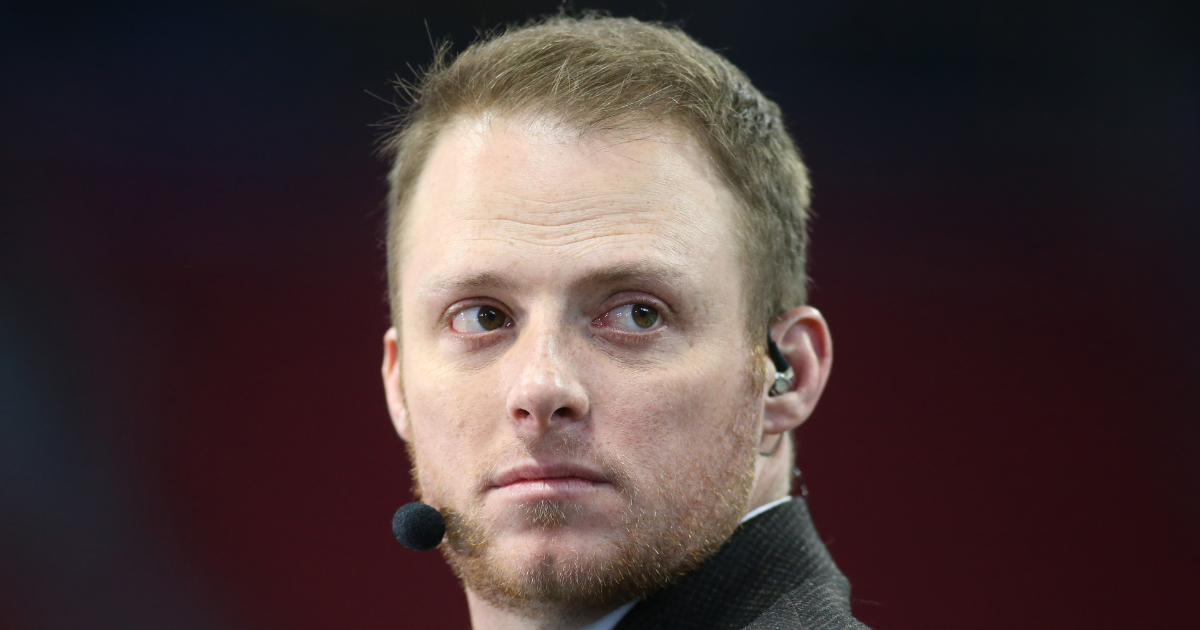
With the House v. NCAA settlement, schools will be allowed to directly pay its athletes up to $20.5 million. These are direct payments and do not come from collectives, but instead from the school’s revenue.
For athletes to receive the NIL payments that fans had grown accustomed to, they will have to screen the deal through a Deloitte clearinghouse that has been titled, “NIL Go.” All NIL deals or endorsements greater than $600 must be processed through the clearinghouse.
While some fans are excited for the process to become more organized, not everybody is convinced that NIL Go will be a success story. This past week, ESPN’s Greg McElroy revealed some of his concerns for NIL Go.
“Here’s the unforeseen circumstance that surrounds the NIL Go platform: It welcomes the underbelly of college football back into the sport,” McElroy said. “Right now, it’s free. it’s fair. You’re allowed to give guys whatever you want to give them, and you do because you want them to play for your team and you want to win games. But now that every single NIL deal could potentially be scrutinized, it welcomes
bad actors back into the game, and if they don’t want this NIL deal to be scrutinized, then you’ll just pay someone under the table.
“That is a concern for me. The sport that we know and love for a long time, there was always an underbelly of college football, whether you want to acknowledge it or not, there were things that were done in an opportunity to entice players to play at certain places for a very long time. That went away in the NIL era because it was all fair, it was all legal. Well, now it’s illegal. So does that now, welcome back some of the back alley payments that we once saw in the sport?”
The College Sports Commission will do everything it can to prevent McElroy’s nightmare scenario from becoming a reality. After all, the new rules were established to encourage order, not incentivize misbehavior. Even if the commission can catch people when they break the rules, how will they punish them?
“The only thing the CSC will be able to do, it’ll be able to penalize violations,” McElroy said. “Now, what will this look like? Will this result in players potentially being suspended for failing to report those NIL deals that they signed? Perhaps. Could it result in universities and football teams not being eligible for the postseason? Could it result in forfeiting games? Perhaps all these things, I think, are on the table.”
NIL
CB Xavier Lucas named Miami College Football Playoff X-Factor
Carter Bahns of CBS Sports named Miami cornerback Xavier Lucas as one of his “College Football Playoff X-factors: Players poised to make or break contenders’ 2025 postseason chances.” Lucas transferred to Miami in the winter portal window and could become the top CB for the Hurricanes in 2025. Mario Cristobal made the secondary a point […]
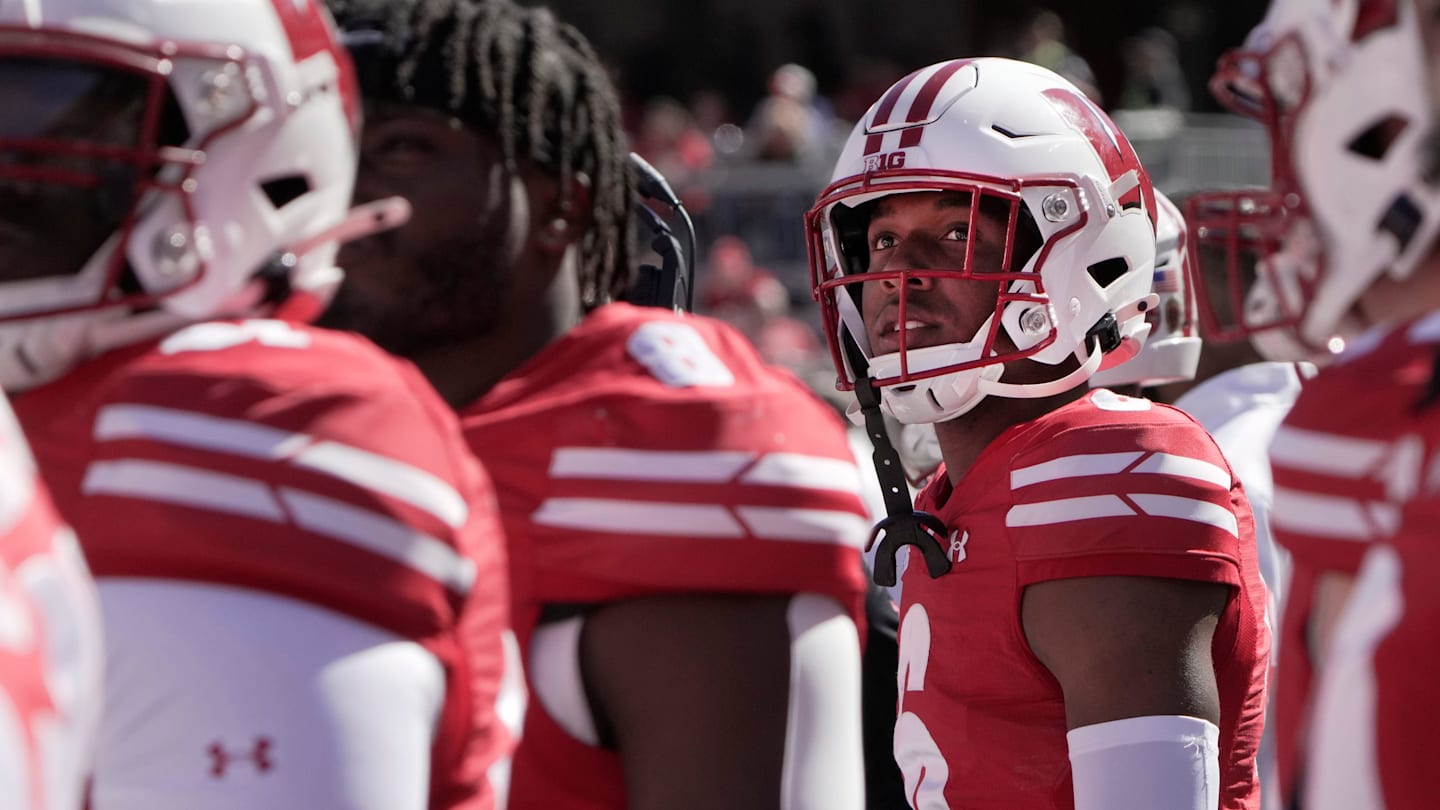
Carter Bahns of CBS Sports named Miami cornerback Xavier Lucas as one of his “College Football Playoff X-factors: Players poised to make or break contenders’ 2025 postseason chances.” Lucas transferred to Miami in the winter portal window and could become the top CB for the Hurricanes in 2025.
Mario Cristobal made the secondary a point of emphasis during the transfer portal. In addition to Lucas, Miami added Charles Brantley and Ethan O’Connor during the winter transfer portal and Kalonte Scott this spring at CB. Zechariah Poyser transferred to Miami in the winter portal and Jakobe Thomas in the spring at safety.
Cornerback O.J. Frederique is the only returning defensive back for Miami projected to start in the secondary in 2025. Frederique and Lucas are projected to start for Miami at CB, Brantley as the nickel and Poyser and Thomas at safety for Miami in 2025.
In addition to the two pass breakups and one interception in 2024 with Wisconsin, Lucas had 18 tackles, two tackles for loss and one sack. playing 203 defensive snaps. Per David Lake of Inside the U, Pro Football Focus gave Lucas “an 80.5 coverage grade, a 76.8 tackling grade, and a 71.0 run defense grade for his efforts in 2024.”
“Xavier Lucas, CBXavier Lucas was the top-ranked corner in the portal and serves as the face of this new-look (secondary) unit, which looks deeper and more talented than the one that struggled last fall. Much of the excitement around Lucas is still rooted in projection considering he has just one year of experience under his belt and posted one interception and two pass breakups at Wisconsin, so a lot hinges on him taking the expected sophomore leap.”
Carter Bahns, CBS Sports
Lake also stated, “According to PFF, Lucas missed just one tackle in 2024. Lucas was targeted 19 times in coverage and allowed nine receptions for 127 yards and one touchdown.” At 6’2 and 198 pounds, Lucas provides Miami with excellent length at CB in 2025.
Miami was wildly inconsistent defending the pass in 2024. The Hurricanes allowed a combined 313 passing yards versus Florida State, Georgia tech and Wake Forest. Four opponents threw for over 300 yards versus Miami in 2024. Led by Lucas, Miami should have a significantly better secondary in 2025.
The Miami secondary will be tested throughout the 2025 season. Florida with D.J. Lagway and SMU with Kevin Jennings return two of the best QBs nationally in 2024. Louisville added Miller Moss from USC, who should elevate his performance under Jeff Brohm. Miami needs consistency from its secondary in 2025.
NIL
John Calipari calls out transfer portal tampering, impact on NIL market
In an era of player movement, NIL dollars have flown once the transfer portal opens. That led to accusations of tampering, and John Calipari spoke candidly about the landscape. Calipari specifically pointed out players’ ability to transfer each year. While he said he understands one or two transfers, he sees players leaving schools more than […]
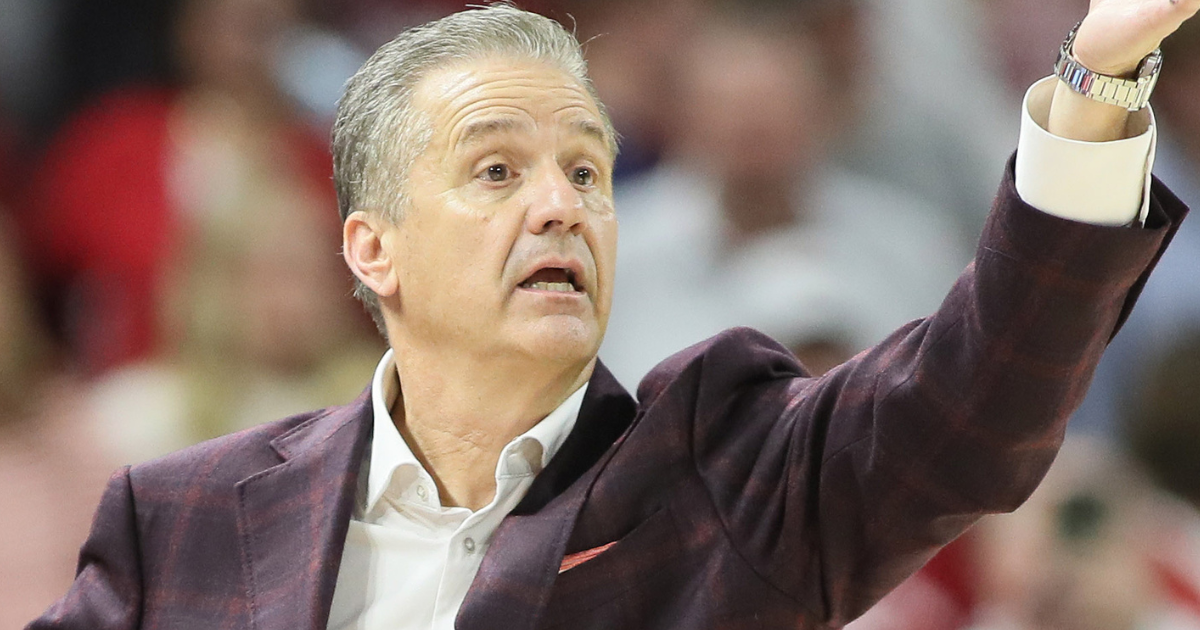
In an era of player movement, NIL dollars have flown once the transfer portal opens. That led to accusations of tampering, and John Calipari spoke candidly about the landscape.
Calipari specifically pointed out players’ ability to transfer each year. While he said he understands one or two transfers, he sees players leaving schools more than that – which has an impact both on the court and in the classroom.
If players were only able to transfer one or two times, Calipari argued, the NIL market could settle down as a result. While he noted legal concerns with implementing such rules, the Arkansas coach thinks those cases would be winnable.
“They should be able to go once, maybe twice, without penalty because the coach lied,” Calipari said Thursday on The Pat McAfee Show. “Told them you’re shooting every ball, I’m gonna play you this way, and he didn’t tell them the truth. Then, they should be able to leave. But four times, that means the first sign of trouble, I’m out. … If you’re a parent, wouldn’t you tell your son, you’re fighting this out? No, you’re staying, you’re going to do it.
“Now, I understand once or twice without penalty. But after that, don’t tell me, ‘Well, we’d get sued.’ A kid transferring four times – one, it’s not good for him. Two, he has no chance academically to do anything. And I think we’re still academic institutions. Take it to court. You can win that.”
Calipari also pointed out recent comments made by Vanderbilt quarterback Diego Pavia. He told Bussin’ with the Boys he could’ve had an NIL offer of more than $4 million if he opted to enter the portal for his final year of eligibility, which came after a judge’s order paved the way.
Because Pavia never entered the portal, John Calipari noted the tampering that took place. That, he said, is more of an issue than the influx of NIL money.
“But if we get that in order, I think the NIL stuff would be fine because right now, you’ve got the quarterback from Vanderbilt … that’s tampering,” Calipari said. “Put your name in the portal, $4.5 million. We have to get away from that more than the NIL.”
The NIL landscape is preparing for a big shift, though. Earlier this month, the landmark House v. NCAA settlement received final approval, meaning the NIL Go clearinghouse is going into effect. Deals worth more than $600 will be vetted by the service, managed by Deloitte, and the goal is to help determine fair market value.
NIL
Inside Rice University’s Revolutionary NIL Strategy
Inside Rice University’s Revolutionary NIL Strategy originally appeared on Athlon Sports. From the Podium to the Boardroom: Rice’s Olympic-Level NIL Playbook When Rice University tapped an Olympic medalist and powerhouse attorney to lead its Name, Image and Likeness (NIL) efforts, it didn’t just make a hire, it made a statement. Advertisement As the House v. […]
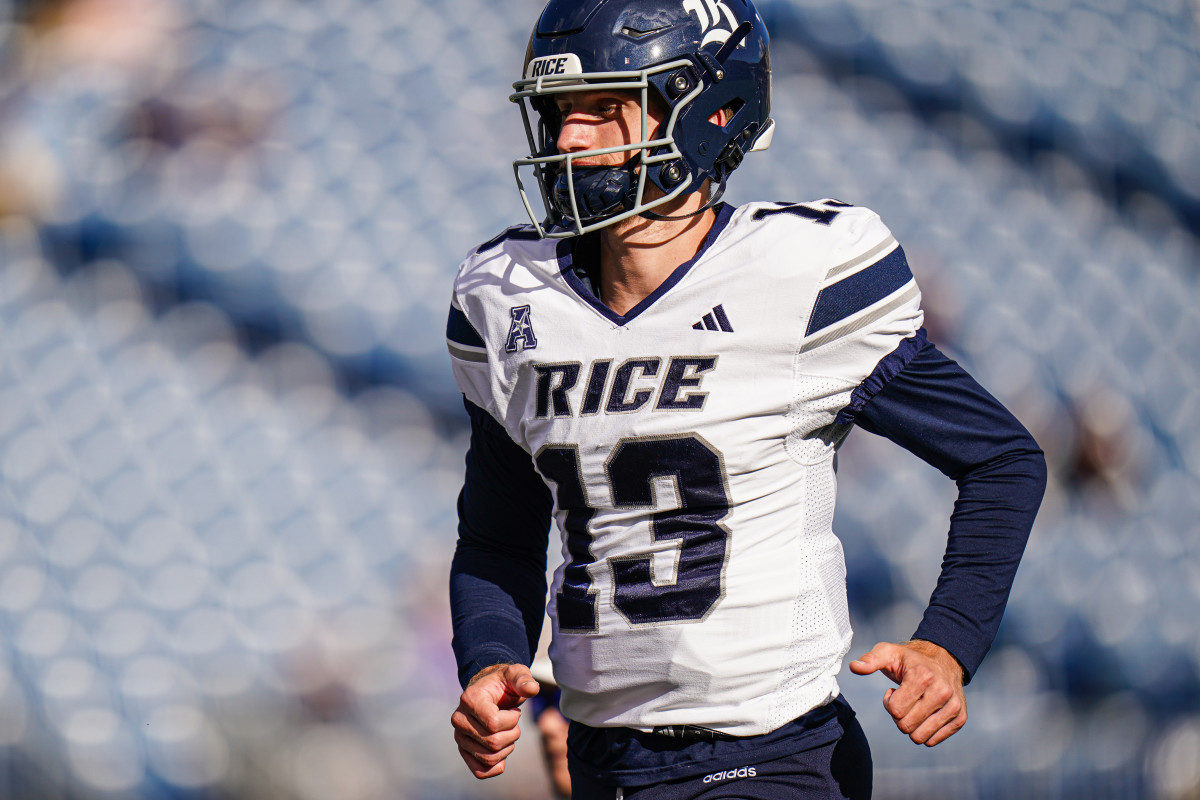
Inside Rice University’s Revolutionary NIL Strategy originally appeared on Athlon Sports.
From the Podium to the Boardroom: Rice’s Olympic-Level NIL Playbook
When Rice University tapped an Olympic medalist and powerhouse attorney to lead its Name, Image and Likeness (NIL) efforts, it didn’t just make a hire, it made a statement.
Advertisement
As the House v. NCAA settlement redefines college athletics, Rice is stepping confidently into uncharted territory. The American Athletic Conference school, though outside the Power 4, has opted into the NCAA’s new revenue-sharing model. This means Rice will invest a minimum of $10 million over three years into its athletes, ushering in a new era of compensation, competition, and credibility.
At the heart of it all? Tasha Moser.
Moser, Rice’s new Associate Athletic Director of NIL and General Manager, isn’t your typical administrator. She’s a former U.S. Olympic gymnast and NCAA champion. She’s also a seasoned attorney who has built a legal practice around NIL strategy and athlete advocacy. Moser helped launch “WeAreNIL” at Munck, Wilson Mandala LLP, offering education and guidance to student-athletes, collectives, and brands. And now, she’s bringing that same expertise, and empathy to Rice.
“It was essential that we find a leader with both experience and passion to guide our NIL efforts,” said Rice Athletic Director Tommy McClelland. “Tasha’s journey, from excelling as a world-class gymnast to becoming a highly successful attorney, perfectly positions her for this moment.”
Advertisement
Innovation Meets Integrity
Rice isn’t throwing money at the problem. It’s crafting an NIL system built on education, transparency, and long-term support. Moser’s role isn’t just to sign deals. She’ll help manage revenue-sharing logistics, guide athletes through contract language, assist coaches with roster strategy, and serve as the bridge between student-athletes and third-party partners.
Her background offers another layer of credibility. As a survivor advocate who testified before Congress on athlete safety and a current board member for USA Gymnastics, Moser brings moral clarity to a space often criticized for blurred lines and missed opportunities.
“Rice has long been a national leader in academic excellence, and now it is leading the way in NIL innovation,” Moser said.

Rice Owls running back Dean Connors (0) runs with the ball against the Texas State Bobcats in the first quarter at Gerald J Ford Stadium.Tim Heitman/USA TODAY Sports
Economic Impact with Athletic Intent
Rice might not be in a Power 4 conference, but its economic and cultural influence is nothing short of elite. According to a recent Collegiate Consulting report, Rice Athletics generated a total impact of over $115 million in game day and event activity over the past three years. Now, with an NIL plan in place, it’s aiming to convert that impact into athlete value.
Advertisement
What’s happening in Houston is a blueprint for other non-Power 4 schools. While the spotlight often stays on blueblood programs, Rice is showing that smart, student-centered NIL execution can level the playing field.
What’s Next?
With the NCAA settlement set to take effect July 1, schools must adapt or fall behind. At Rice, NIL isn’t just a compliance checkbox, it’s a competitive advantage.
For fans, donors, and student-athletes watching from the sidelines, the message is clear: Rice is ready to win, on and off the field.
Related: NIL Struggles Far From Over After NCAA’s House Settlement
This story was originally reported by Athlon Sports on Jun 19, 2025, where it first appeared.
NIL
Greg McElroy pushes back on the Big Ten having the best quarterbacks in college football in 2025
The Big Ten boasts a boatload of talent at quarterback entering the 2025 campaign. However, ESPN’s Greg McElroy isn’t convinced the conference will have the best QBs in the country next season. Last week, McElroy explained his hesitation to name the Big Ten the conference of the QB in the upcoming season. “I like the […]
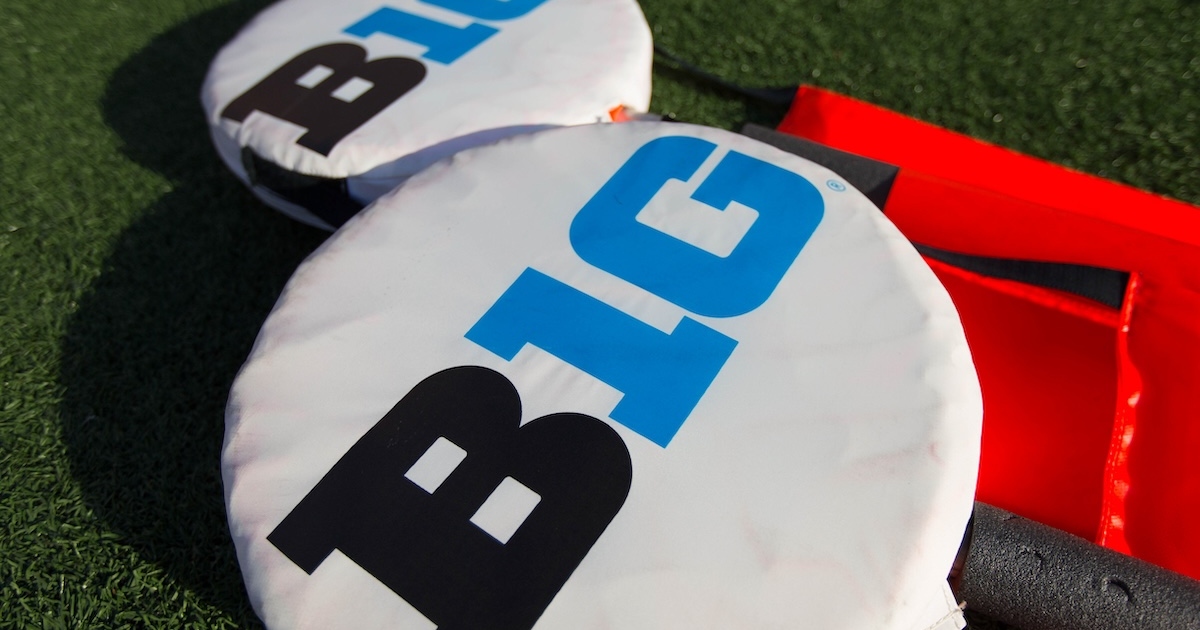
The Big Ten boasts a boatload of talent at quarterback entering the 2025 campaign. However, ESPN’s Greg McElroy isn’t convinced the conference will have the best QBs in the country next season. Last week, McElroy explained his hesitation to name the Big Ten the conference of the QB in the upcoming season.
“I like the potential at a few places for sure,” McElroy said. “We’re kind of hinging our expectations on the potential of a handful of guys like Dante Moore at Oregon. Obviously, really highly-regarded, highly-touted player, but you don’t know for sure until they run out there and take the first snap.
“You don’t really know what you have until the guy goes out there and passes that test. The same can be said with Julian Sayin, assuming he gets the job at Ohio State. I think he’s probably the guy to beat, really highly-touted guy, clearly incredible skill set, great potential, but we don’t know just yet.”
Moore and Sayin are far from the only pieces in the Big Ten that McElroy isn’t all in on yet. While Michigan‘s Bryce Underwood was the No. 1 player in the 2025 recruiting cycle, there’s no way to know for sure how he will perform against collegiate competition until the season begins.
McElroy really likes pre-existing standouts like Penn State‘s Drew Allar and Illinois‘ Luke Altmyer, but he also needs to see them to continue to progress next season. McElroy is more than willing to admit the Big Ten could ultimately have the best quarterbacks, but he wouldn’t bet on it going into the season.
“I can’t, at this point, tell you that without a shadow of a doubt it’s the best group collectively,” McElroy said. “Are we going based on what they’ve done at the college level so far? Are we going based on upside? Because I gave you the three big names that could really alter the perception of the quarterback position in the Big Ten.
“That’s Dante Moore, Julian Sayin and Bryce Underwood. Those three guys all knock it out of the park, completely different conversation. But at this point, there’s a few more known commodities in other places.”
McElroy believes the Big 12 might have the best claim for quarterback talent ahead of the 2025 campaign. With Arizona State‘s Sam Leavitt, Baylor‘s Sawyer Robertson, TCU‘s Josh Hoover and other returning starters taking the stage, the Big 12 will have a loaded slate of talent behind center next season.
McElroy also mentioned the ACC and the SEC as potentially having better QB rosters than the Big Ten. Fans won’t have to wait long to see which quarterbacks step up this fall. College football kickoff is officially just over a month away, and McElroy can’t wait to see how the season pans out.
NIL
Michigan Rebels Against NCAA With New Bill To Block NIL Crackdown
The newly approved NCAA vs. House settlement has created implications throughout college sports. Now, the state of Michigan is getting involved. Michigan has seen a bill introduced that could potentially target part of the agreement regarding NIL and reporting deals with the NCAA and investigate them. Reps first introduced House Bill No. 4643. Tate, Herzberg, […]
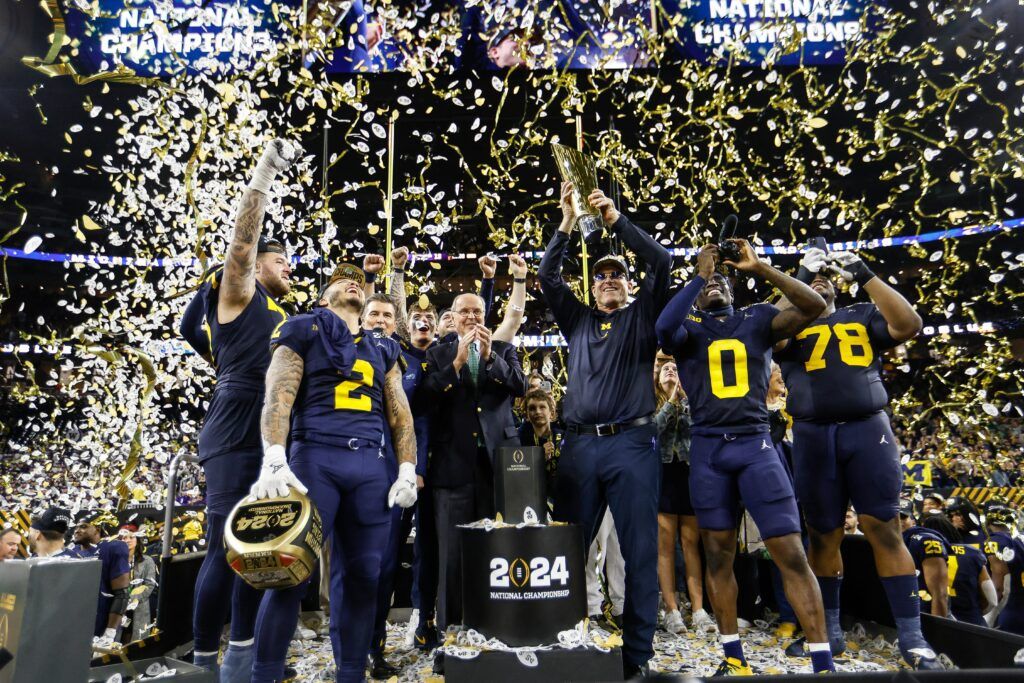
The newly approved NCAA vs. House settlement has created implications throughout college sports. Now, the state of Michigan is getting involved. Michigan has seen a bill introduced that could potentially target part of the agreement regarding NIL and reporting deals with the NCAA and investigate them.
Reps first introduced House Bill No. 4643. Tate, Herzberg, and Rheingans last week. This bill would completely ban reporting incoming deals to the NCAA. On top of that, it would also stop schools from assisting in any investigation and ban athletic associations from penalizing athletes or schools for non-compliance.
Michigan Goes Back At NCAA With New Bill To Block NIL Crackdown
While the settlement between the NCAA and the House was known for allowing revenue sharing, there’s so much more to it than just that. Among other agreements to try and shape the future of college athletics was that NIL deals above $600 will need third-party approval.
To make this happen, the deals will be sent to a new clearinghouse called “NIL Go.” Deloitte is set to oversee the fair compensation ranges in that regard. From there, the House settlement will also establish a new enforcement agency called the College Sports Commission. It’s going to be their job to handle investigations into improper deals done outside the system that the settlement is seeking to establish.
For the state of Michigan, they fired back at the NCAA with a new bill. In their proposed bill, the third-party approval and the latest enforcement agency would be directly affected if this bill were to be signed into law.
Michigan has five FBS programs, including its two Big Ten schools, Michigan and Michigan State. The Wolverines have been a powerhouse in college football and won a national championship as recently as the 2023 season.
A new Michigan bill introduced would ban schools from complying with NIL investigations and prohibit requiring the reporting of NIL deals to the College Sports Commission and Deloitte. https://t.co/ce5kXhS21j pic.twitter.com/fZ2UhySHD8
— On3 NIL (@On3NIL) June 19, 2025
Earlier in the year, the ACC, Big 12, Big Ten, and SEC each presented their member institutions with affiliation agreements. These agreements would prevent universities from using state laws to violate new enforcement rules. The price for not signing on to these agreements could also be very steep.
In layman’s terms, a school risks losing conference membership and participation against other power league programs. Conference administrators have used this tactic to, hopefully, enforce the House settlement regardless of the laws in place.
KEEP READING: Analysts Expose Harsh Truth About House v. NCAA’s Effect On NIL Deals and College Football Bluebloods
This is similar to a bill passed in Tennessee back in May. This was considered to be a very athlete-friendly law and shares some unique similarities with the one being brought forward by representatives in Michigan.
Tennessee law states that Tennessee schools can receive dollars from collectives unless told otherwise by federal law, a valid court order, or antitrust laws. This law also prevents the NCAA from creating anticompetitive restrictions and seeks to protect Tennessee schools from any potential further legal disputes.
Like the bill in Michigan, it was a pushback to the House settlement. In particular, they both appear to seek to stop all of the House settlement’s limits on NIL payments. They are both creating protections for schools from outside investigators.
What will come next from this proposed bill in Michigan remains to be seen. It must be passed and signed into law before the fallout begins to be felt. It should also be interesting to see if any other states follow Tennessee and Michigan’s lead.
NIL
Oregon Softball picks up versatile power hitter in portal
Elon Butler played three seasons at Cal on a squad that made the NCAA Tournament all three times, a power-hitting utility player from San Jose, California who started games for the Bears at second base, shortstop and right field. In three seasons she hit 37 home runs with 112 RBI, a career .328 hitter with […]
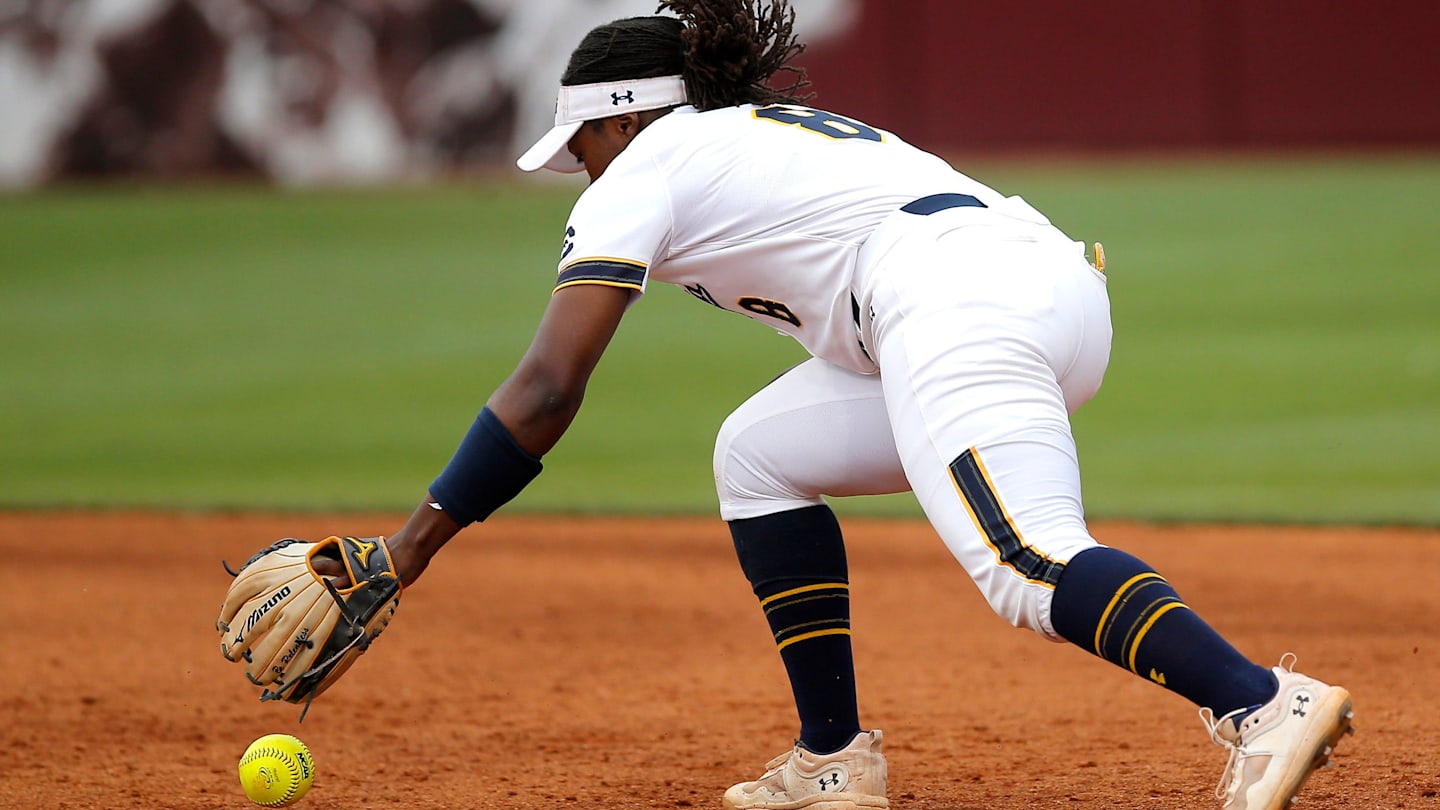
Elon Butler played three seasons at Cal on a squad that made the NCAA Tournament all three times, a power-hitting utility player from San Jose, California who started games for the Bears at second base, shortstop and right field.
In three seasons she hit 37 home runs with 112 RBI, a career .328 hitter with a .621 slugging percentage. On Wednesday she transferred to the Ducks.
NFCA named her a Second Team All-American in 2024, Second Team All-PAC-12 in her sophomore season. That year she led the Bears with 17 circuit clouts and 44 RBIs. As a junior she hit a career-high .361.
In a statement, Oregon coach Melyssa Lombardi said,
“I am impressed with Elon’s power at the plate. She can change the game with one swing. She has faced elite pitching her entire career and has excelled. “
She can turn a single into a double with her ability to run. I also like her athleticism and versatility on defense. Elon’s a competitor and will be a great addition to Version 8.”
She’ll help the Ducks in replacing clutch-hitting Dez Patmon and shortstop Paige Sinicki, the glue for Version 7, the 54-10 squad that made it all to Softball World Series in Oklahoma City.
That tells you the softball part of the story, but Butler is far more than a gifted, versatile power hitter. The daughter of LaDonna and Howard Butler majored in data science at Cal Berkeley, considering medical school after her undergrad. She enjoys drawing, painting and writing.
While at Cal she led a group of Bear players in a protest for social justice, kneeling during the national anthem to draw attention to ongoing police brutality.
She told Marisa Ingemi of the San Francisco Chronicle, “At the end of the day, I’m going to stand on what I believe in. That was just the biggest thing, that I was proud of myself. I’m proud of my teammates for that we still stand on what we believe.”
At a tournament in Louisiana she heard boos and catcalls, epithets about “woke nonsense” and keeping politics out of sports.
Seventy-six years after Jackie Robinson, the politics still aren’t out of sports. Because athletes are people too. And Elon Butler is an intelligent young woman with a conscience as well as an exceptional ability to hit a softball.
In a game against Oregon in March of 2024 she erupted for six RBI. Now she’s a Duck.
BOOOOM!
10th homer of the year for Elon Butler. #GoBears pic.twitter.com/2ytfnqs7Ab
— Cal Softball (@CalSB) March 10, 2024
Read More:
-
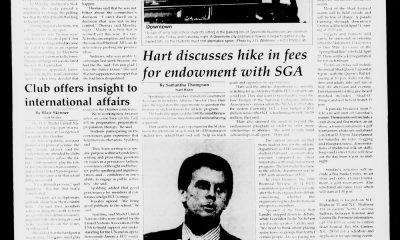
 High School Sports2 weeks ago
High School Sports2 weeks agoParents Speak Out As Trans Pitcher Throws Shutout In MN State Quarterfinals
-

 Professional Sports2 weeks ago
Professional Sports2 weeks ago'I asked Anderson privately'… UFC legend retells secret sparring session between Jon Jones …
-
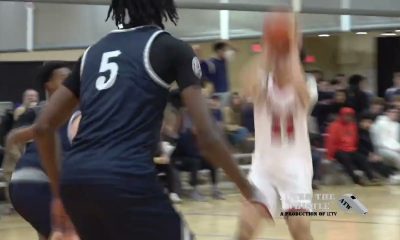
 College Sports3 weeks ago
College Sports3 weeks agoIU basketball recruiting
-

 Health2 weeks ago
Health2 weeks agoOregon track star wages legal battle against trans athlete policy after medal ceremony protest
-

 Professional Sports2 weeks ago
Professional Sports2 weeks agoUFC 316 star storms out of Media Day when asked about bitter feud with Rampage Jackson
-
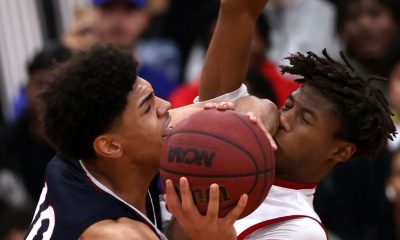
 High School Sports3 weeks ago
High School Sports3 weeks agoThe Arizona Daily Star's top high school athletes, coaches and moments of the 2024
-

 Social Media3 weeks ago
Social Media3 weeks agoControversial Athletics Gender Dispute Goes Viral After Riley Gaines Lashes Over Authorities
-
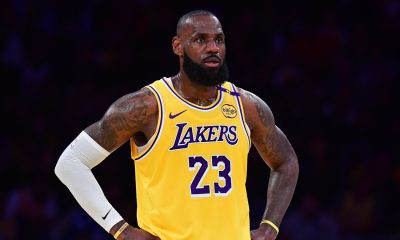
 Rec Sports2 weeks ago
Rec Sports2 weeks ago2x NBA All-Star Reacts to Viral LeBron James Statement
-
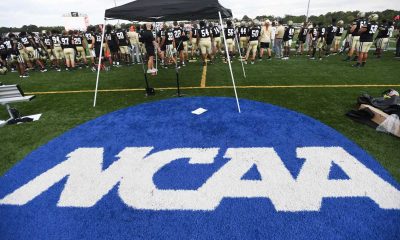
 NIL3 weeks ago
NIL3 weeks agoNCAA Sends Clear Message About Athlete Pay and Roster Limits
-

 NIL3 weeks ago
NIL3 weeks agoMen's college basketball Top 25 reset
































